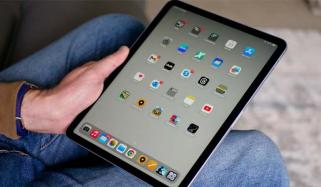
A recent study revealed a surprising fact about the human brain and its capabilities.
Technology, such as Wi-Fi, processes information much faster than the human brain.
The study published in the journal Neuron revealed that despite the brain’s amazing biological structure, its processing speed is slower compared to the fast, efficient systems of modern technology.
While modern wifi connections can handle millions of bits per second, the brain can only process 10 bits per second.
Study co-author Markus Meister issued a statement, “Every moment, we are extracting just 10 bits from the trillion that our senses are taking in and using those 10 to perceive the world around us and make decisions. This raises a paradox: What is the brain doing to filter all this information?”
Researchers determined the brain processes information by studying human activities like typing and gaming.
Despite the impressive speed of advanced typists or elite video gamers, their information processing is still only around 10 bits per second.
Researchers further investigate whether the speed of human thinking is limited by the body’s physical ability to respond.
To test this, researchers examined blind speedcubing which relies more on mental processing than physical movement.
Despite the reduced physical effort, the study found that the brain’s thinking speed during this task is relatively slow, at just under 12 bits per second.
Human cognitive speed may be a result of evolutionary design suited for a slower-paced environment.
Early humans only needed to handle about ten bits of information per second to navigate their surroundings and make decisions.
While in today’s fast-paced digital world, this slower speed struggles to keep up with the rapid flow of information and technology, which is much faster than what our brains were designed for.















